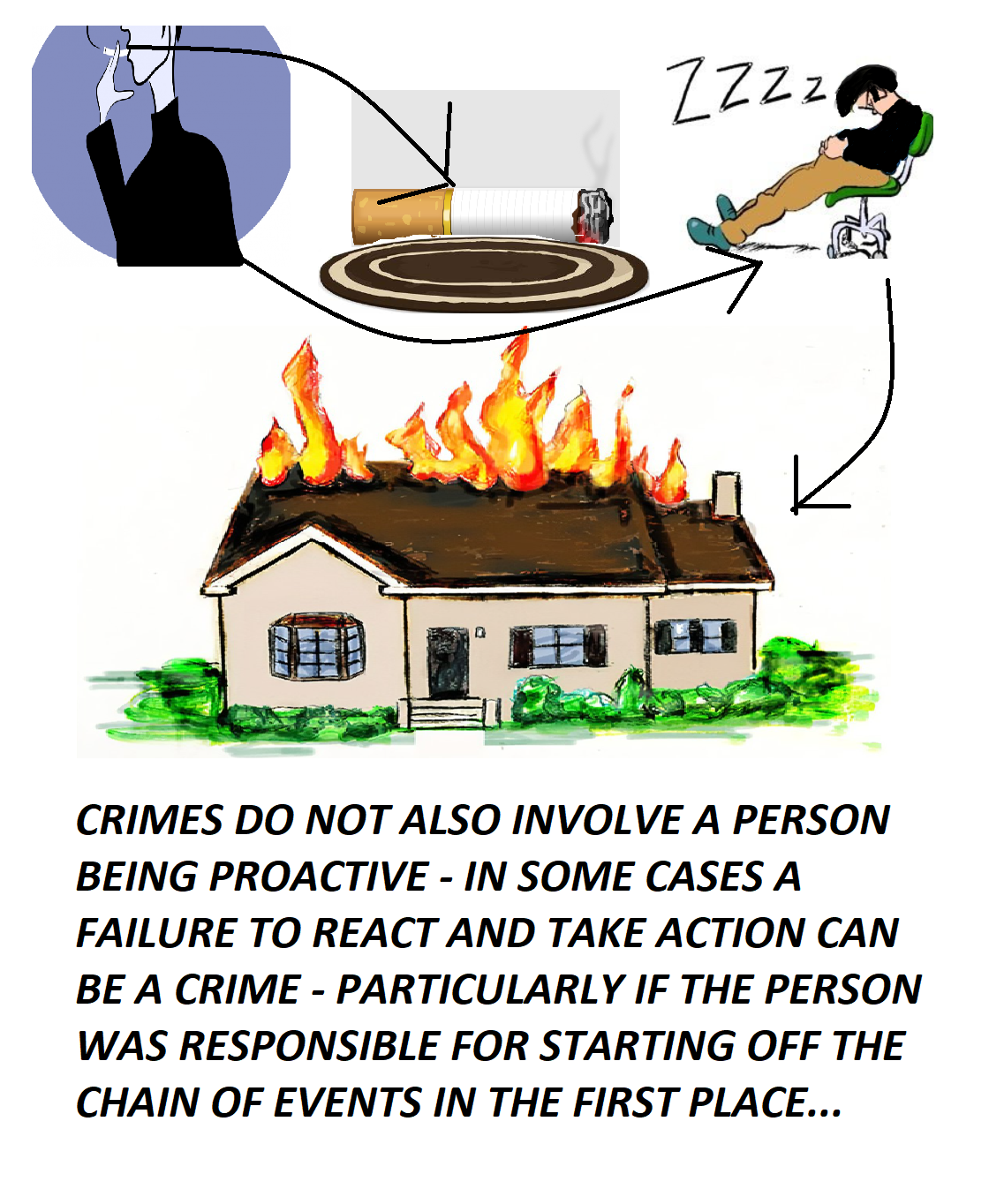R v Miller, 1982, [1982] UKHL 6
Citation:R v Miller, 1982, [1982] UKHL 6
Rule of thumb:Does a crime always have to be an actual act taken, or can it be a failure to act? A failure to act can be a crime. The Court in this case affirmed that the actus reus for a crime can also constitute a failure to act, especially if they are the source of the problem at the start.
Background facts:
The facts were that Miller finished with a cigarette butt in his bedroom that fell onto his mattress. Miller did not put this out and just assumed that it would burn out and amount to nothing, so he moved to the living room. This then caused a massive fire.
Judgment:
Miller was convicted or arson/fire-raising for this and this scenario was deemed to meet the actus reus and mens rea requirement for crime. This case was also very important for establishing the principle of supervening fault – this means that if someone has created a problem in the first place, and then this causes damage, then they are liable for this, and their arguments about reasonable inspection of their property are not relevant.

Ratio-decidendi:
‘I see no rational ground for excluding from conduct capable of giving rise to criminal liability, conduct which consists of failing to take measures that lie within one's power to counteract a danger that one has oneself created, if at the time of such conduct one's state of mind is such as constitutes a necessary ingredient of the offence. The decision in effect established that the actus reus was in fact the set of events, starting with the time the fire was set, and ending with the reckless refusal to extinguish it, establishing the requisite mens rea and actus reus requirements. Therefore, an omission to act may constitute actus reus. Actions can create a duty, and failure to act on such a duty can therefore be branded blameworthy. Secondly, an act and subsequent omission constitute a collective actus reus. This has been described as the principle of 'supervening fault’, Lord Diplock
Warning: This is not professional legal advice. This is not professional legal education advice. Please obtain professional guidance before embarking on any legal course of action. This is just an interpretation of a Judgment by persons of legal insight & varying levels of legal specialism, experience & expertise. Please read the Judgment yourself and form your own interpretation of it with professional assistance.

